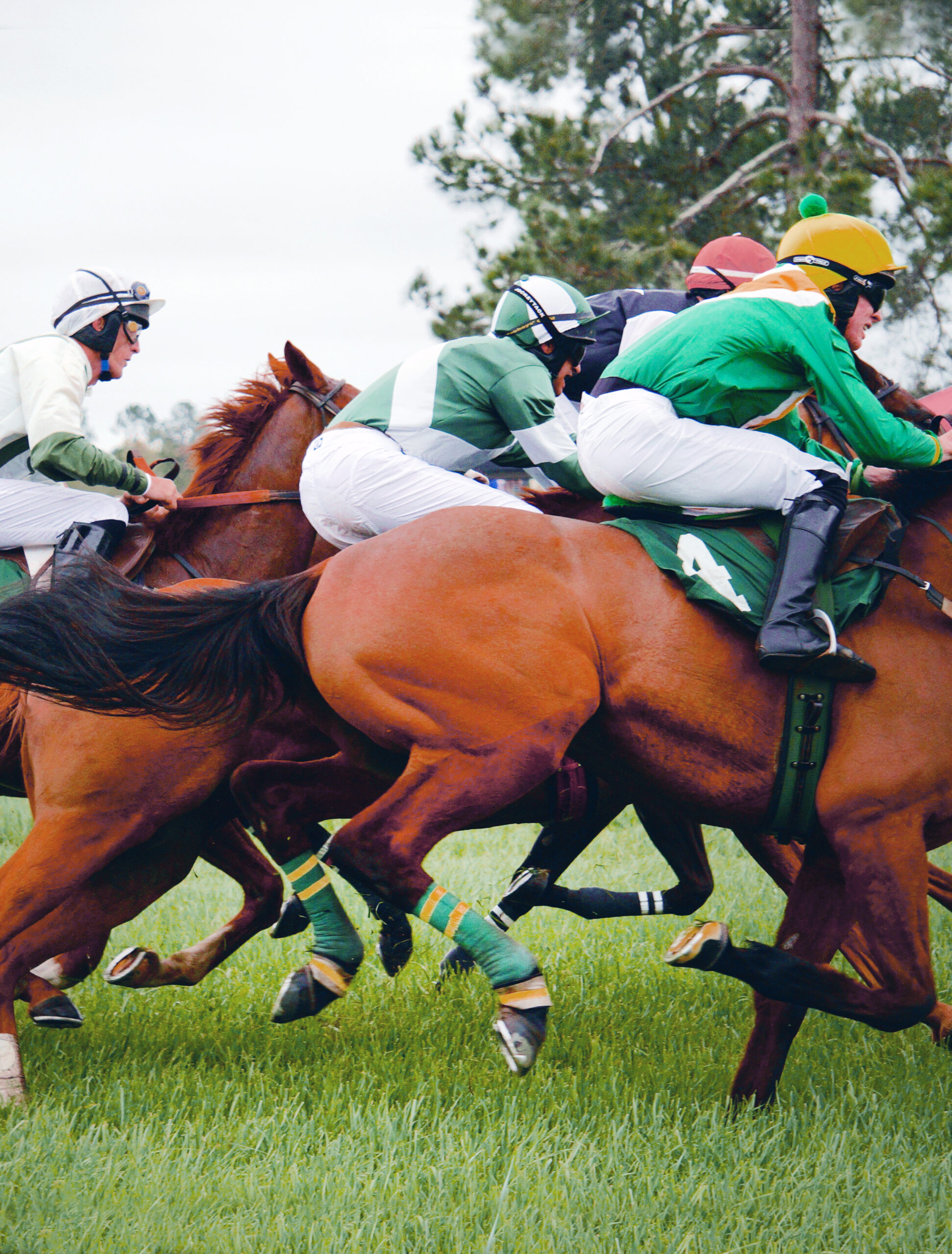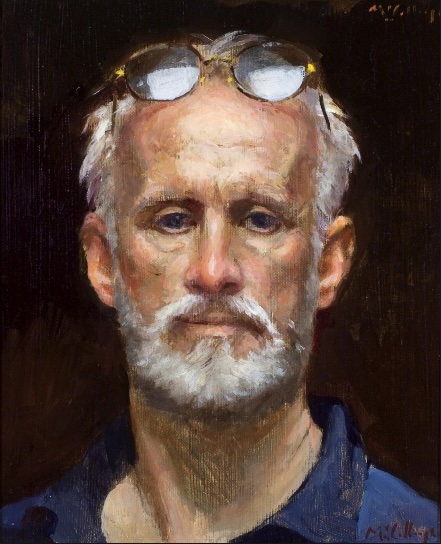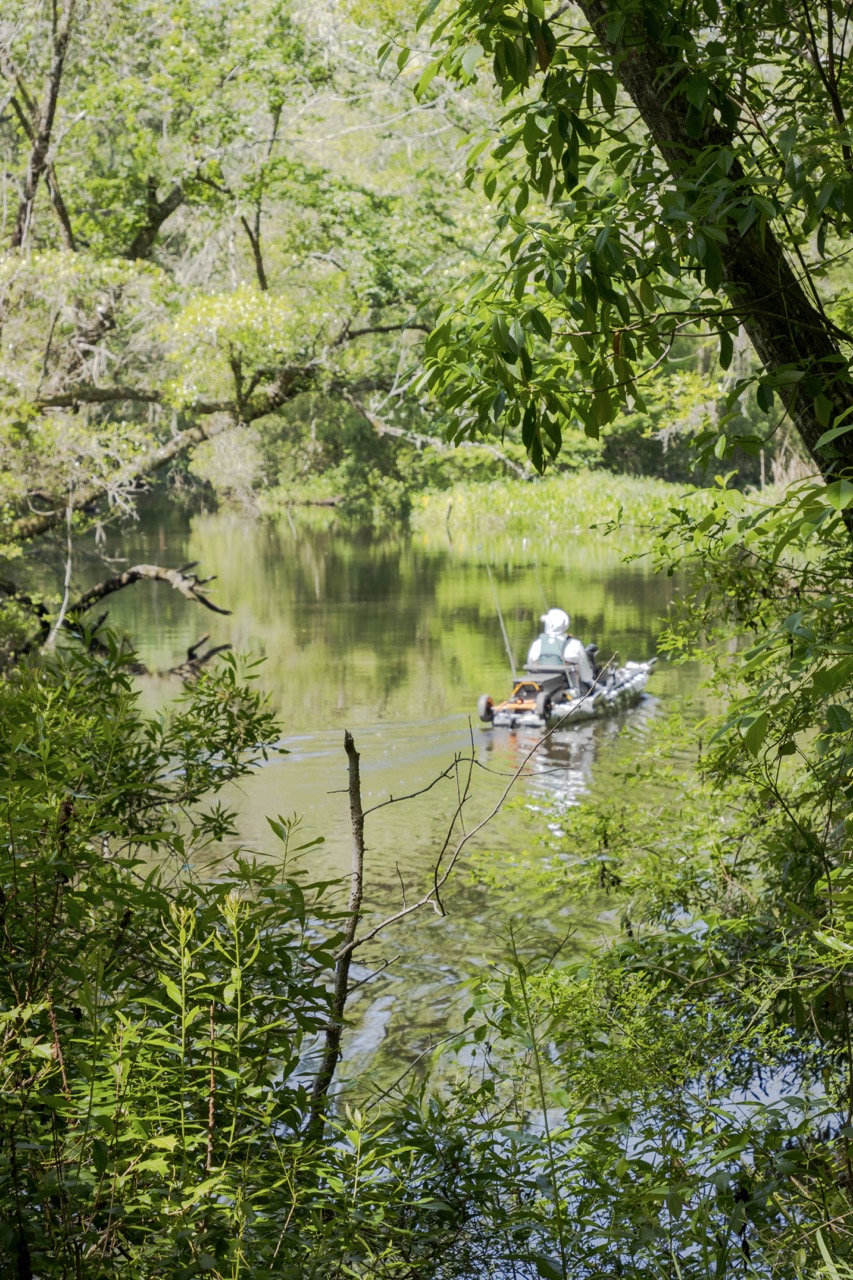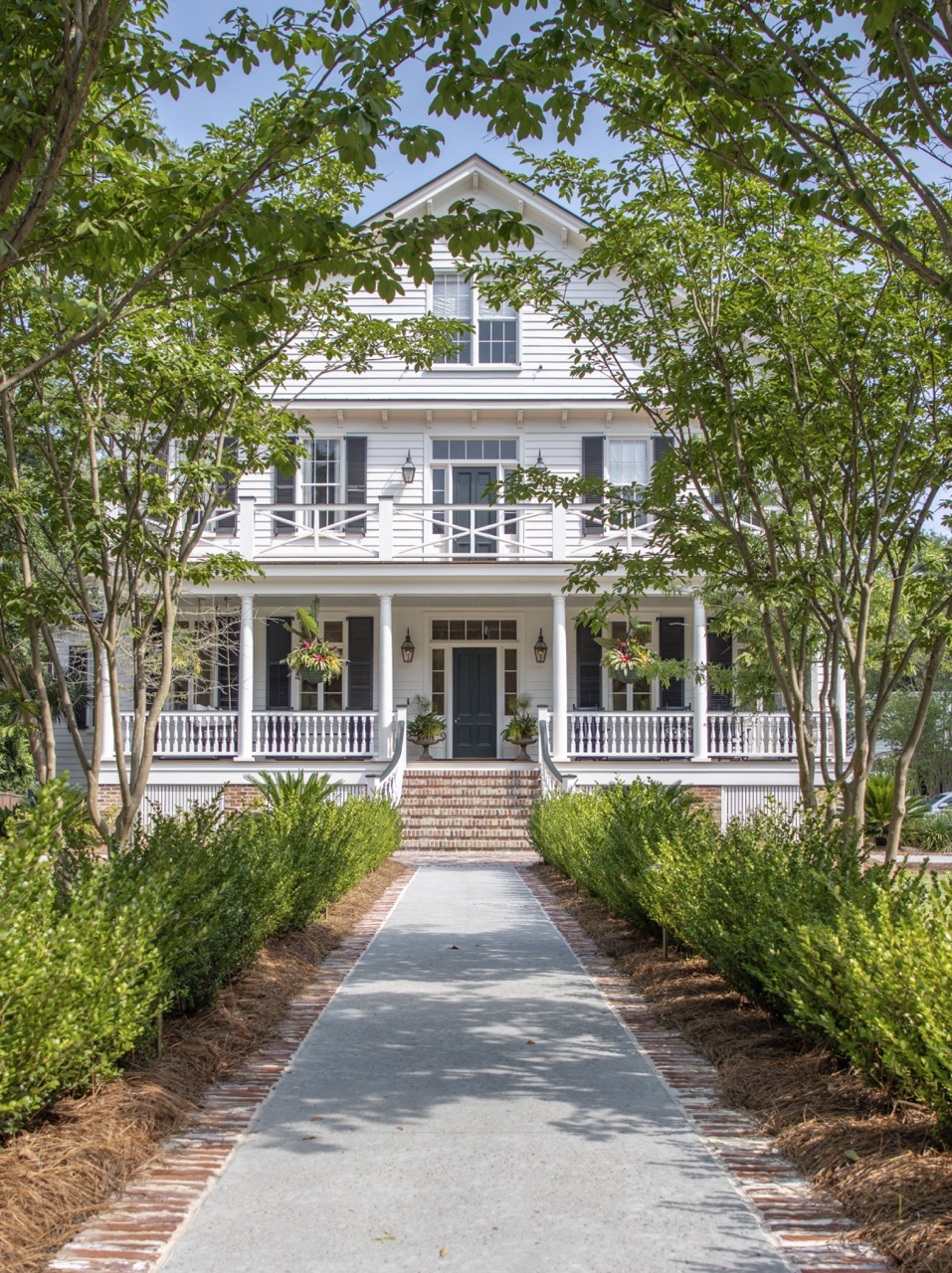Uncontrived and elegant, Aiken is a year-round city of endless grace and boundless energy.
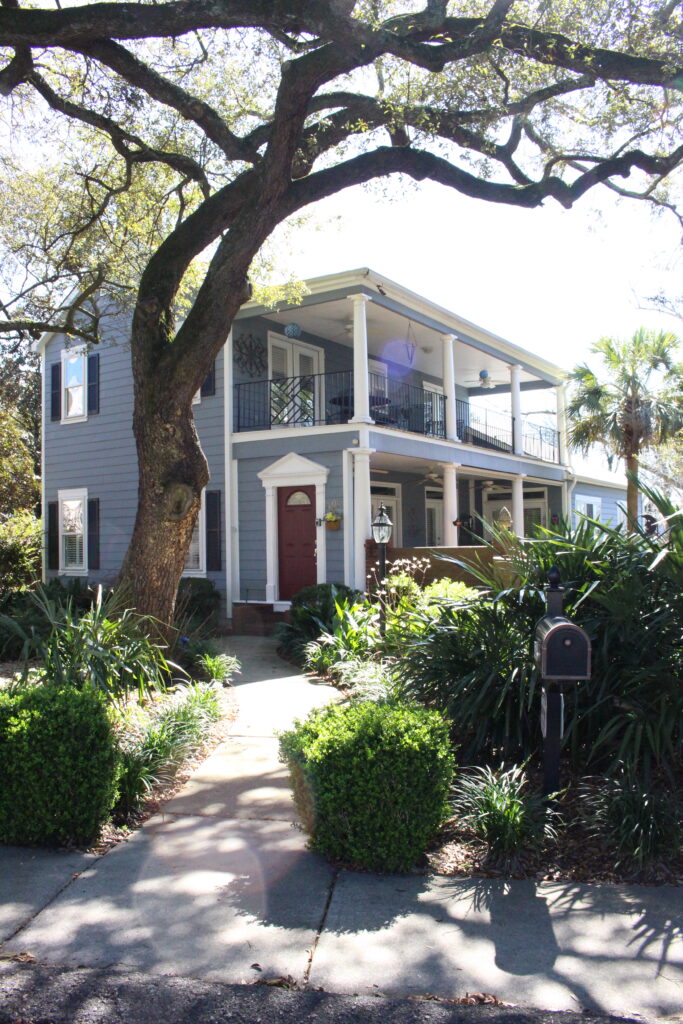
It is springtime in Aiken, and at the intersection of Whiskey Road and South Boundary, the sunlight of a cloudless sky filters through the trees, and time seems to stand still. The white blossoms of dogwoods float above azaleas exploding with color, and daffodils nod their heads on swaying green stems. This city has long been seated at the crossroads of constant motion and relaxed gentility, and it is not difficult to imagine the days when the ladies of The Winter Colony promenaded along shady lanes with parasols, and gentlemen in frock coats stepped out for a bracing breath of fresh morning air.
As it has since steam power once drove the longest railroad track in the world to its doorstep, the get-up-and-go of the horses dubbed it the Polo Center of the World, and the Savannah River Plant reen- ergized the region, today’s Aiken hums with the vitality of a thriving community. It was a railroad built from Charleston, SC in 1828 that first brought wealthy vacationers to the tree-shaded boulevards. Seeking refuge from the heat and mosquitos of Lowcountry summers, wealthy Charlestonians flocked to the site on the Savannah River that in 1835 came to be known as the City of Aiken.
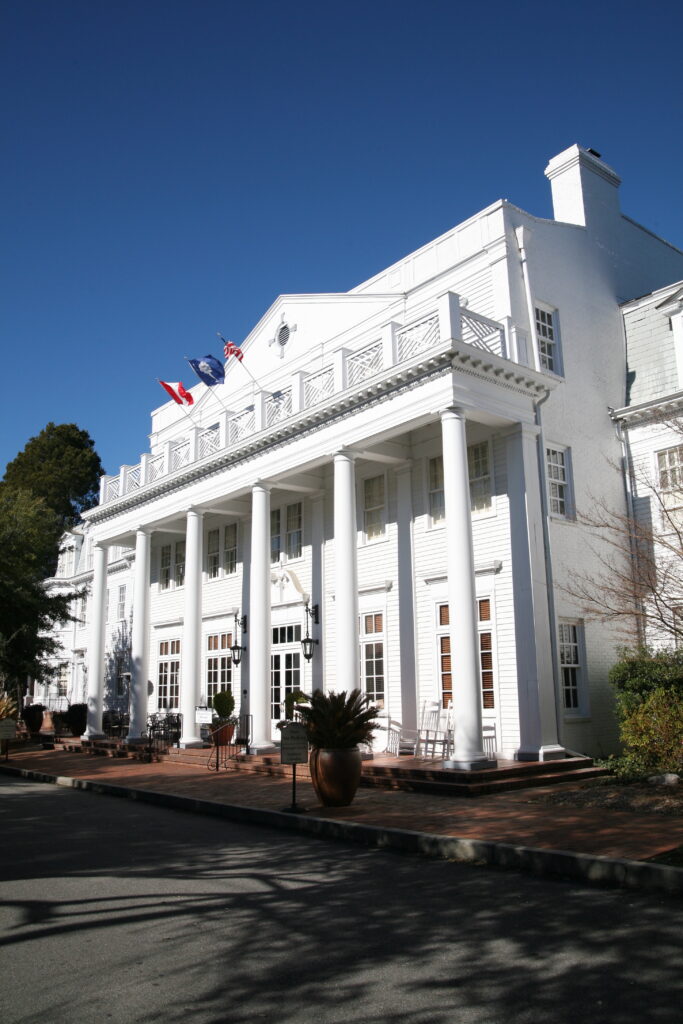
In the early 1870s, after the Civil War, the temperate climate again became a draw, this time as a warm haven for wealthy northerners escaping cold winters. The increasing popularity of the resort town nicknamed it “the Winter Colony.” When the winter residents began to bring their horses south to enjoy outdoor pursuits denied them by the frigid northern weather, the rolling countryside of Aiken became a magnet for the enthusiasts, and a culture built around equine interests. The beautiful architecture of homes and churches that remain a signature element of Aiken came to represent the wealth and sophistication of the city and its residents.
Though there is a theme-park perfection to the picturesque winding lanes and distinctive architecture, make no mistake – no matter the season, Aiken, SC is as authentic today as it was when founded in 1835. Time has been kind to the place that once drew wealthy and powerful Golden Era industrialists and celebrities to the warmth of its sun-drenched winters.
The horsepower that helped build Aiken’s identity and establish it as a haven for equine interests can be recognized at every turn, and still drives many of the year-round events and festivals. Kicking the year off with the parades and pageantry of the Aiken Trials, the first leg of Aiken’s Triple Crown, spring quickly marks the calendar with The Ai- ken Steeplechase Association’s celebrated Imperial Cup Spring Stee- plechase. Founded in 1930 by several influential horsemen, including Thomas Hitchcock, Temple Gwathmey and Harry Worchester Smith, the Steeplechase Association’s first official race was run in Hitchcock Woods, one of the largest urban forests in the United States, once dubbed “the greatest equine playground in America.” Late March’s Pacers and Polo is the event rounding out the third leg of the Triple Crown.
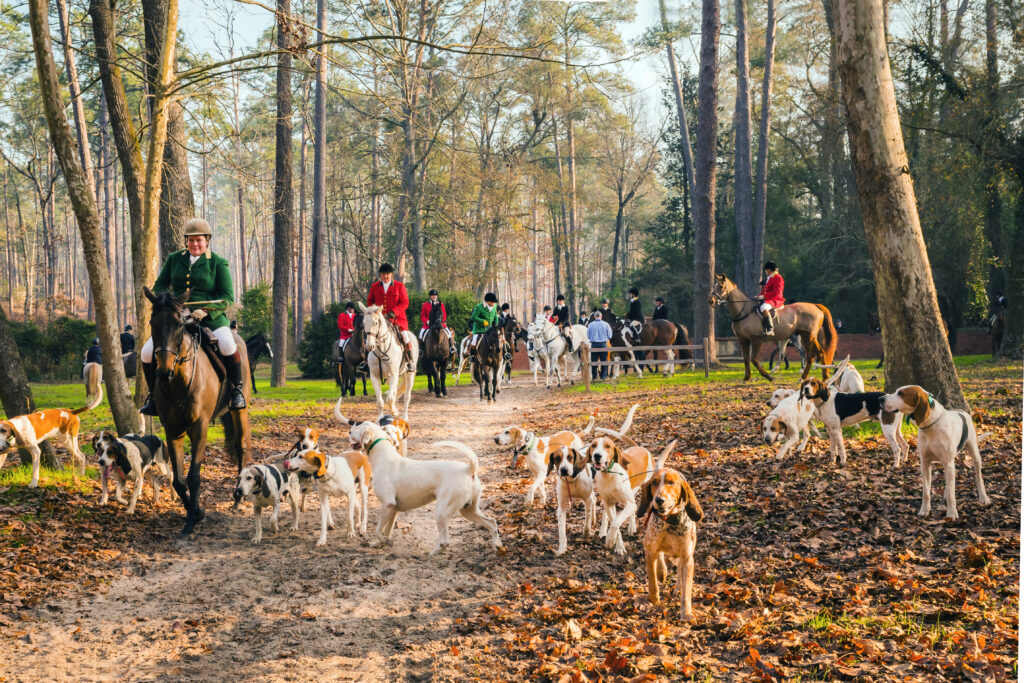
Hitchcock Woods, the 2,000-acre tract managed by the Hitchcock Foundation since 1939, is also home to The Blessing of the Hounds, the event that closes out the year and is a must-see for residents and visitors alike. The colorful ceremony is a tribute to the heritage of Aiken’s historic hunt culture, and to the skilled hounds that bay their joyful music down the path following the trail of a dragged cloth saturated with fox scent.
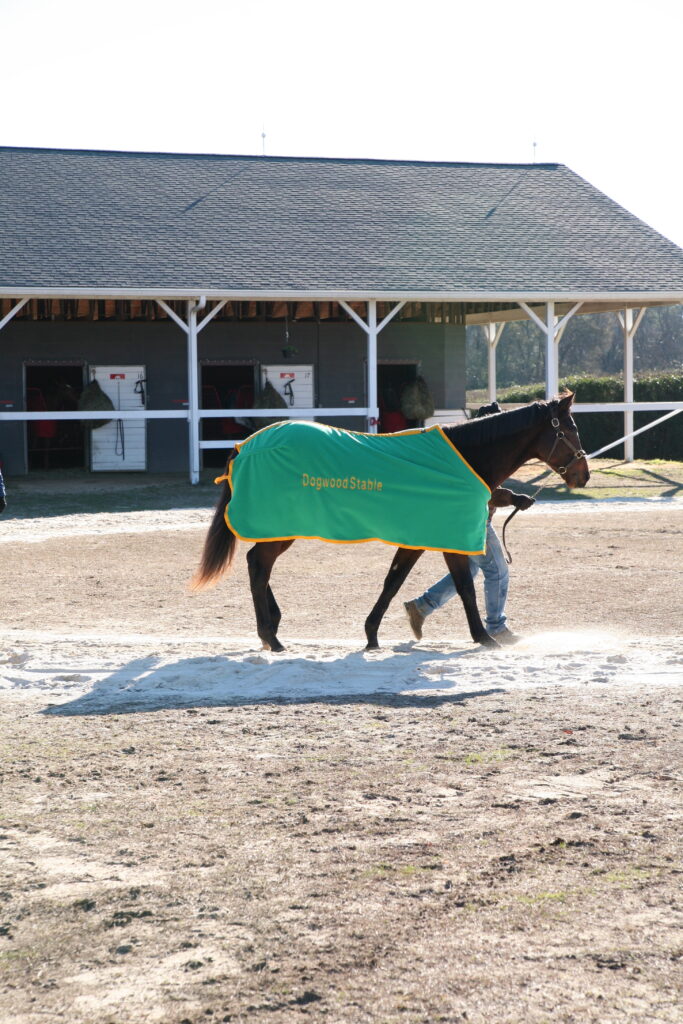
Though a unique equine heritage is at the very heart of Aiken, the quaint cottages peeking from behind jasmine draped fences and stately mansions keeping watch over winding, tree-lined streets are also the backdrop for a wide range of other world-class events and festivals. Arts and cultural events dot the calendar from February’s Antique Show and Film Festival to May’s Bluegrass Festival, to the winter wonderland that is Christmas in Hopelands, the extravaganza held on the grounds of the 14-acre estate opened in 1969 as a year- round public garden.
Among the most highly anticipated arts events is March’s Joye in Aiken Performing Arts Festival and Education Outreach Program, which brings the world’s finest young musicians, actors, and danc- ers to Aiken, along with students, faculty, and alumni of New York’s prestigious Juilliard School. The event is the namesake of Aiken’s Joye Cottage, a beautiful Gilded Age mansion that serves as a place of re- treat and renewal for participating artists, and honors the central role the facility has played in Aiken’s cultural history. Because providing comprehensive access to the arts is an integral part of the non-profit organization’s mission, a majority of the community-wide events are free or low-cost.
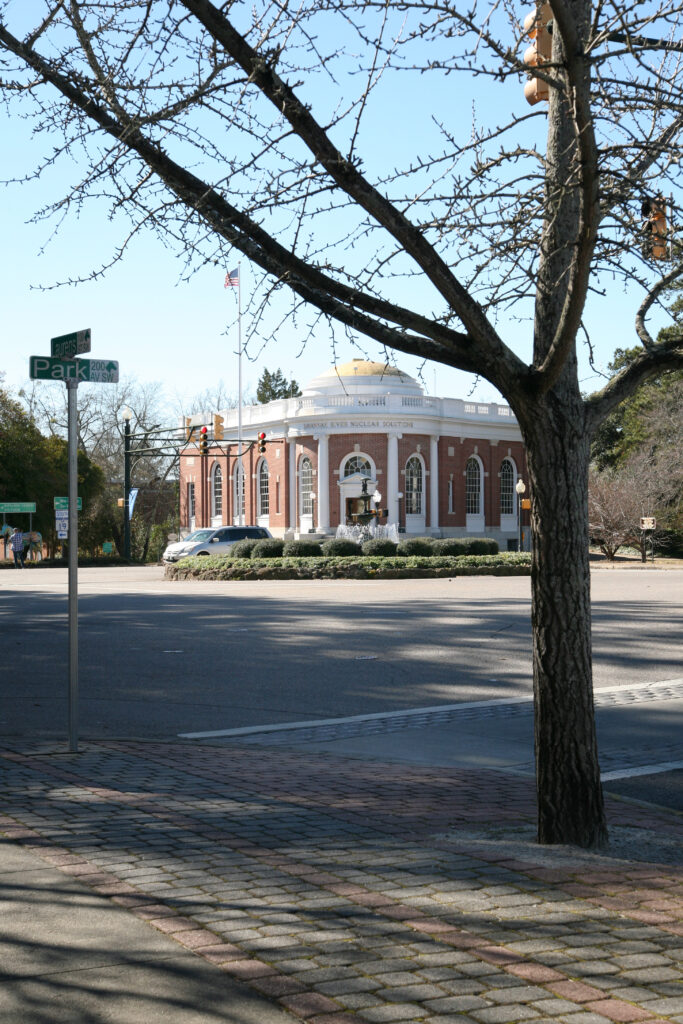
Among the features that have recently named Aiken to Southern Liv- ing’s list of Best Small Towns, The Willcox stands in white-columned splendor on the Aiken Arboretum Trail’s Colleton Avenue. An 1898 Colonial Revival landmark property on the National Historic Reg- ister, the magnificent hotel firmly anchors Aiken to the glamour and opulence that was the trademark of The Winter Colony’s time in residence, and still enjoys a far-reaching reputation built on its atmosphere, impeccable service and excellent cuisine. Since The Willcox welcomed its first guest in 1900, scores of national and inter- national leaders have passed through its doors, including presidents and statesmen, captains of industry, inventors, entrepreneurs, phi- lanthropists, and royalty. Today, as grand and graceful as ever, The Willcox continues to draw people from all over the world, and has been voted one of the best hotels in the world by Travel + Leisure and Conde Nast Traveler readers for its matchless personal service, gracious accommodations, excellent cuisine and their individual in- terpretation of the “Aiken lifestyle.”
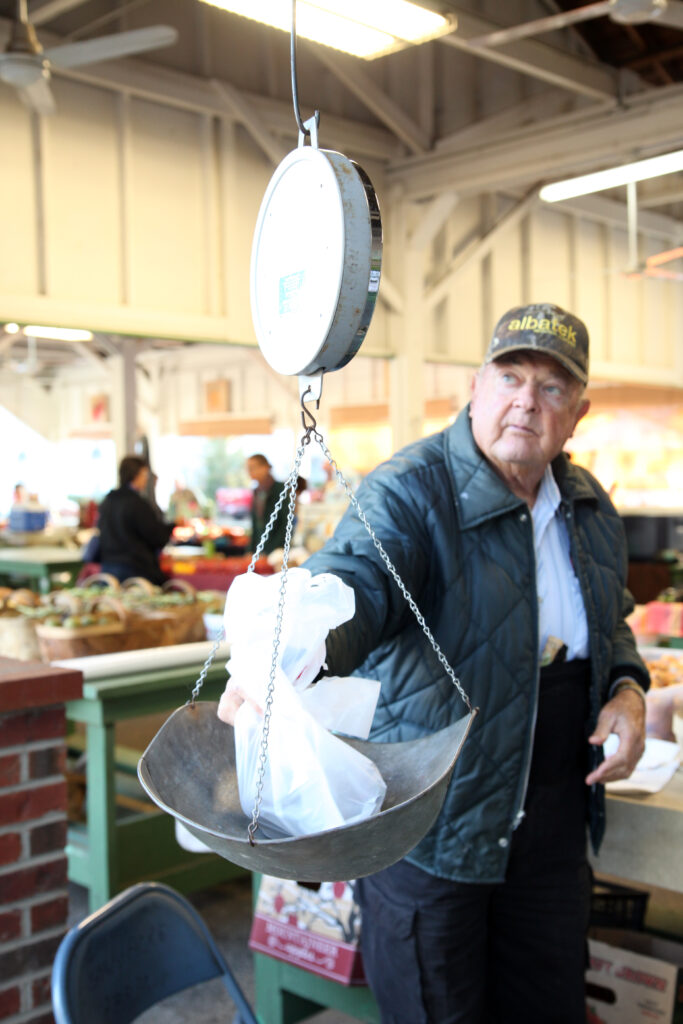


History gallops through modern-day Aiken, and there are many ways to discover the people, places, and events that formed this fascinating area. The Aiken County Historical Museum, Aiken Re- gional Library, The Center for African American History Arts and Culture, and Savannah River Site Museum are among the wealth of resources available to history buffs.
As captivating as Aiken’s history is to explore, there is no time like the present to enjoy all that the city has to offer. It’s easy to make a day of browsing through Aiken’s bustling and delightfully charming downtown that hosts services and shopping ranging from spas and salons to high fashion and furnishings, and fine art galleries and antique stores. An abundance of restaurants, coffee shops, and cafes feature options to suit every schedule and taste; from a quick bite of breakfast to a leisurely lunch, a hand-crafted happy hour to an elegant sit-down dinner, and everything in between.
Whether you’re among those who still seek out Aiken for respite from the heat or a warm winter’s canter on a scenic path, or enjoy a walk through historical splendor or a concert in the garden, Aiken is a year-round destination. Pop in for a day visit, come for a romantic weekend or mark every season on your calendar, you’re sure to be taken by the charm and hospitality of the genteel Southern city of history and horses. Aiken invites you to come and explore the mag- nificence of its past, experience the authenticity of its present-day grace and beauty, and look forward to where a legacy of boundless energy will lead it tomorrow. AM

